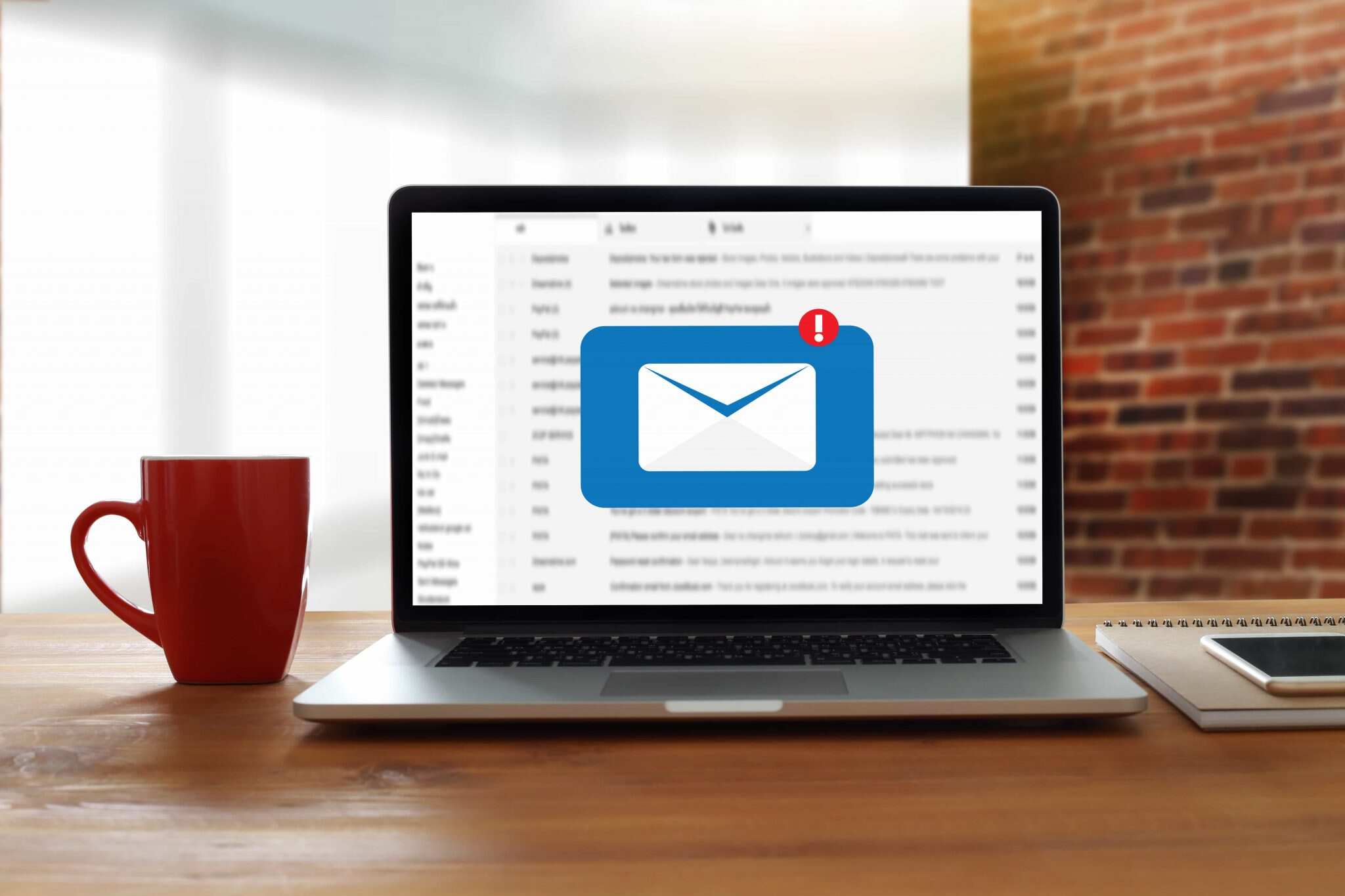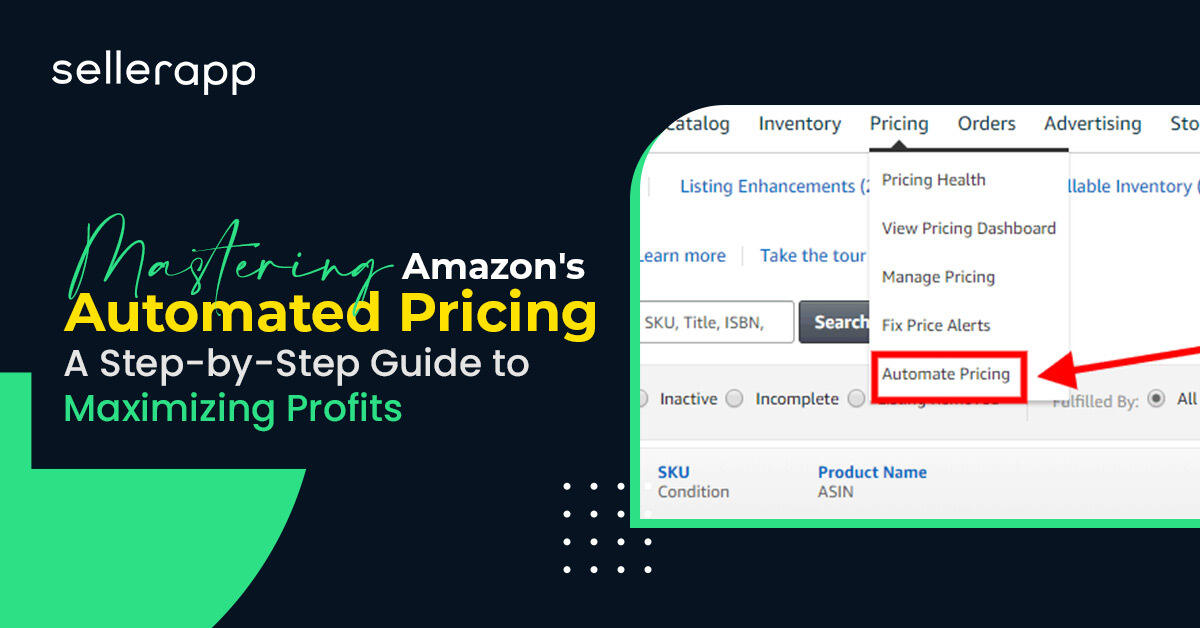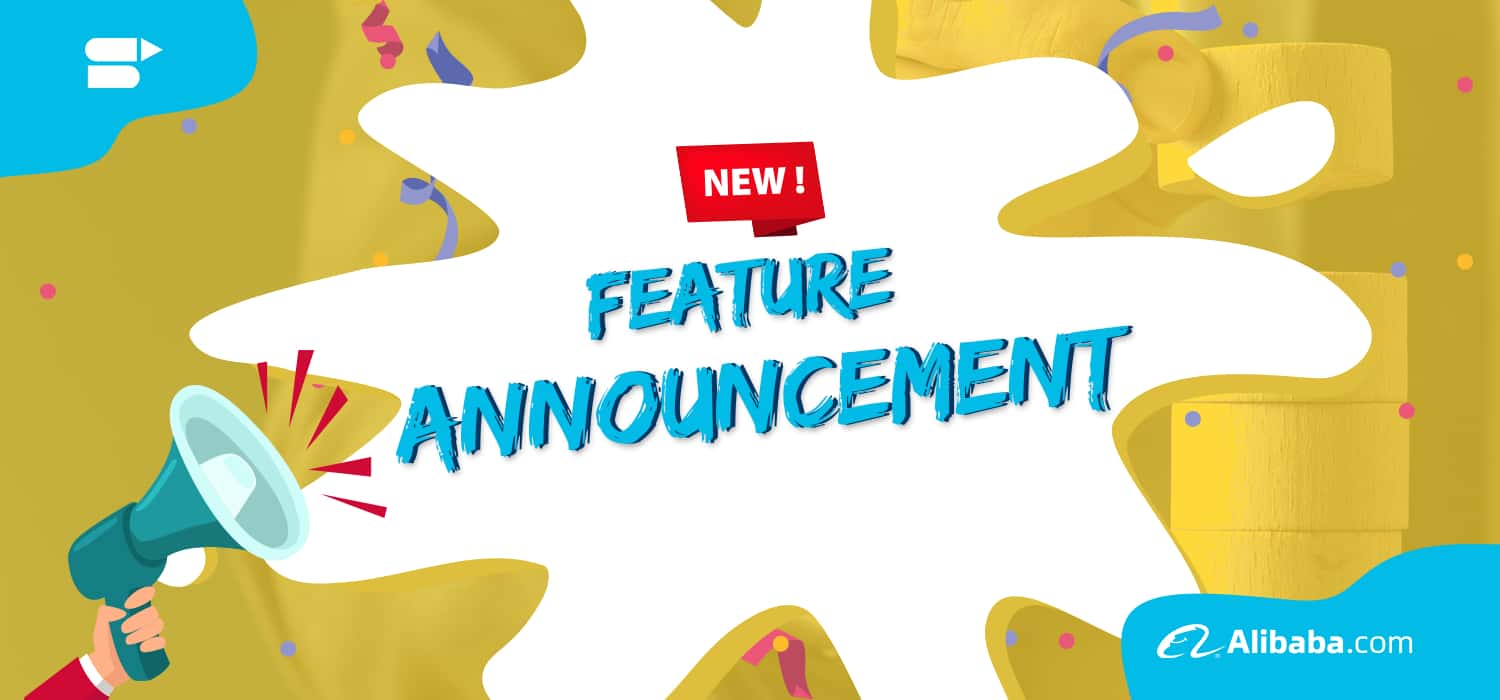Win the Buy Box And Boost Sales With This Step-by-Step Amazon Guide

So, we all know Amazon is the big shot in online shopping, selling a whopping 120 million products and offering killer prices.
It’s like the ultimate bargain haven, right?
But ever wonder why things are often cheaper on Amazon?
Well, it’s a showdown to grab that Buy Box on Amazon.
In this article, we’re breaking down the Amazon Buy Box mystery. We’ll spill the beans on how to consistently snatch that Buy Box. Plus, we’re throwing in some smart pricing tricks to help you secure that little orange button. Ready to be the Buy Box champ on Amazon? Let’s dive into the nitty-gritty!
Quick guide
- What is the Buy Box on Amazon?
- Amazon Buy Box eligibility
- Importance of Amazon Buy Box
- Amazon Buy Box: Pricing myths busted
- How to win the Buy Box on Amazon in 2020
- Maintain inventory
- Sign up for Amazon FBA
- Fast Shipping
- Seller rating
- Product pricing
- Seller experience
- Why am I not winning the Buy Box?
- Pricing strategies to win the Amazon Buy Box
- Manual repricing
- Rule-Based repricing
- Algorithmic repricing
- Does Amazon always win the Buy Box?
- Lost the Buy Box – What next?
- Final thoughts
What is the Buy Box on Amazon?
Have you noticed a prominently displayed ‘Buy Now’ and ‘add to cart button on the right side of a product listing? That is the Amazon Buy Box. This innocuous button lets one lucky merchant or seller stand out from the others. Whenever a customer clicks on any of these two buttons, they are buying from that particular seller.
Amazon Buy Box eligibility
Every seller has a chance to win the Buy Box on Amazon provided they have a professional account. People with individual seller accounts cannot win the Buy Box. Therefore, sellers need a professional account to be eligible to win the Buy Box. A professional account will set you back $39.99 every month, but if you are competing to win a Buy Box, it is more than worth the investment.
Moreover, only new products are eligible to win the Buy Box. This means that used products cannot win the Buy Box.
Importance of Amazon Buy Box
Most customers buy products directly using the Buy Box without even considering the other offers. Around 80% of all Amazon sales are through the Buy Box. That is why it is important to win the Buy Box. That is also why there’s a lot of competition for the Buy Box. With mobile shopping becoming more and more popular, the importance of the Buy Box is only set to increase.
In a nutshell, winning the Buy Box is a guaranteed way to boost your sales.
Note: It is possible that a listing does not have a Buy Box. While it is rare, consumers will see a ‘See all buying options’ message instead.
Amazon Buy Box: Pricing myths busted
Many people believe that price is the only factor that decides who wins the Buy Box. It couldn’t be farther from the truth. Price is one of the many deciding factors that Amazon’s algorithm considers when assigning the Buy Box. Competitive pricing is very important when it comes to e-commerce, but it is not the only deciding factor when customers make a purchase.
Let’s have a look at the various factors that Amazon considers when assigning the Buy Box
How to win the Buy Box on Amazon in 2023
Once you have a professional account, the way to win the Buy Box is by creating an impeccable customer experience. Amazon is obsessed with customer satisfaction, and you should be too. So, what is the Amazon Buy Box formula? How can sellers win the Buy Box and stay on top?
Maintain inventory
Your chances of winning the Buy Box also depend on whether Amazon thinks you have sufficient inventory to fulfill the order. Sounds confusing? In a nutshell, if you don’t keep up with demand, your chances of winning the Buy Box take a hit. Always keep track of how much inventory you have and regularly check inventory reports. This will ensure that you’re never short on inventory.
Sign up for Amazon FBA
FBA (fulfillment-by-Amazon) Sellers have an advantage when competing for the Buy Box. For FBA sellers, Amazon takes care of the packaging, shipping, and customer service. Products sold by FBA sellers also qualify for Prime – ensuring lightning-quick delivery. This does not mean that FBM cannot win the Buy Box. It is possible, but it is easier with FBA.
FBA is the smarter choice if you want to win the Buy Box, but in the end, it depends on your business model.
Non-FBA sellers can also be eligible for Prime delivery through SFP (seller-fulfilled Prime.) Unfortunately, not all sellers can qualify for the SFP program. Sellers need to have an impeccable sales record and a good seller ranking to qualify for SFP.

Fast Shipping
Amazon Prime has drastically altered customer expectations for e-commerce deliveries. Keeping up with the trend, Amazon ensures greater visibility for sellers who offer faster delivery. This is why FBA and SFP sellers have a massive advantage when competing for the Buy Box.
In general, shipping time comes under the following brackets.
- 0-2 days
- 3-7 days
- 8-13 days
- 14 days or more
Seller rating
Amazon has a 0-100 rating system for every seller. The higher you’re rating, the better your chances of winning the Buy Box. Your seller rating is influenced by multiple factors including customer response time, order cancellations, A-to-Z claims, customer feedback, and more. Ideally, you also want to ensure that your Amazon order defect rate is below 1%. If more than 1% of the products you send out are defective, you will be penalized.
How quickly you respond to customer queries also affects your chances of winning the Amazon Buy Box. The online retail giant monitors your customer response time, and delayed responses will have adverse effects on your seller rating.
Product pricing
Every shopper loves competitive pricing. Amazon loves what customers love. Amazon’s goal is to provide exceptional goods at affordable prices to its customers. That’s why product pricing is a factor in deciding who wins the Buy Box. The cheaper the prices, the better your chances of winning the Buy Box. However, you need to be careful and ensure that you’re not selling your product at a loss when competing for the Buy Box. Don’t forget, pricing is only one of the factors determining your ability to win the Buy Box. It is possible to win the Buy Box at a higher product price if your other metrics are great.
Checking on price changes is a full-time job, but there are ways to make the process easier. You can use tools like SellerApp that will alert you whenever a competitor’s product price changes. Alternatively, you can automate the process with repricing tools. We’ll go into detail about repricing techniques later.
Seller experience
Unfortunately, this is a metric that you cannot control. Experienced sellers do have an advantage over new sellers, but it is not an insurmountable advantage. With great seller metrics and the right pricing strategies, even new sellers can compete for the Buy Box.
Why am I not winning the Buy Box?
There could be a number of reasons that prevent you from winning the Buy Box. The usual culprit is a poor seller rating, inventory, or pricing. It is difficult to pinpoint the exact problem because it is not possible to view your seller rating. Moreover, improving your seller rating takes time. However, there are metrics that you can improve quickly. Your inventory health can be gauged directly from your inventory reports. If there are shortfalls, you can quickly address them. Shipping time can be improved by signing up with FBA. If FBA does not fit into your business goals, you should attempt to become an SFP seller. Pricing can also be changed in an instant from your seller central account. Many sellers also use automatic repricing tools to always stay one step ahead of the competition.
Are you still having trouble winning the Buy Box? I suggest watching this video where Ankitha Nagaraj, Customer Success Head at SellerApp breaks down everything you need to do to win the Buy Box on Amazon.
Pricing strategies to win the Amazon Buy Box
Sellers are constantly changing their product prices in order to win the Buy Box. In many cases, even a few pennies can tip the scales in their favor. There are 3 ways in which you can consistently change the price of your products:
- Manual repricing
- Rule-based repricing
- Algorithmic repricing
Manual repricing
This is the simplest repricing method that involves manually updating product prices through the Amazon seller central interface or any other third-party platform. This offers the greatest amount of control over prices, but can be time-consuming in very competitive categories. This can also turn out to be a Herculean task for sellers with a large portfolio.
Rule-Based repricing
This is by far the most popular repricing technique used by sellers. Repricing, in this case, is based on the parameters that you set and is commonly used by automatic repricing tools. This allows sellers to change prices while factoring in profit margins.
For instance, you could set a condition where you drop your product price to one penny lower than your lowest-priced competitor. You can also add additional parameters to ensure your profit margin never dips below 15%.
While manual inputs are minimal, you should routinely check on the prices to ensure your parameters are optimized to meet your business needs. Rule-based repricing can also lead to ugly price wars, where sellers consistently lowering prices lead to poor profitability. You can use SellerApp’s FBA calculator to find out how profitable your product is before setting your parameters.
Algorithmic repricing
This is another method that popular repricing tool like GoAura use. Unlike rule-based repricing where you set the parameters, algorithmic repricers come with their own set of rules to maximize profitability and win the Buy Box. This is great if you have a large portfolio of products on sale. There are little to no manual inputs involved. The drawback? These repricing tools tend to be expensive.
Automatic repricing tools (rule-based and algorithmic) can be incredibly useful in highly competitive categories. Price wars are very common on Amazon and are decided only by the product price when other metrics are similar. If your seller metrics are better, you can actually afford to sell the product at a higher price and still win the Buy Box.
Does Amazon always win the Buy Box?
This is a concern common to many sellers across the world. Whenever Amazon sells the same product, we often notice that the retail giant controls the Buy Box. Why is that? Has Amazon rigged the game to benefit their own products and brands?
The answer is simple. The selling process is not rigged. Every seller, including Amazon, has the same chances of winning the Buy Box. However, Amazon’s massive logistical network and influence often mean that they can acquire the same product for cheaper and sell the product at a cheaper price. Amazon products are also eligible for Prime delivery. This means Amazon is just one of the competitive sellers vying for the Buy Box. The algorithm, however, is impartial, and every seller has the same chances of winning the magical Buy Box.
Lost the Buy Box – What next?
The Buy Box does change hands constantly, so it is important that you constantly monitor it. If you’ve lost the Buy Box, it is important that you win it back immediately. Don’t forget that seller ranking affects your chances of winning the Buy Box, so you should always be trying to maximize sales.
One reason you may have lost the Buy Box is a lack of sufficient inventory to fulfill orders. If this is the case, then ensure that a new shipment is on the way. Planning for seasonal fluctuations in demand is important if you want to hold on to the Buy Box.
The first thing most sellers do when they lose the Buy Box is to adjust product pricing. While that is a valid strategy, ensure that your margins are not very affected. Alternatively, you can run short-term promotions or offer coupons to win back the Buy Box.
The most important thing is that you are alerted whenever you lose the Buy Box. SellerApp’s Buy Box alerts will always keep you in the loop so that you can win it back immediately and secure your sales!
Final thoughts
While the Buy Box is not the only factor that contributes to success on Amazon, it is a key feature. Pricing is one of the crucial factors affecting your chances of winning the ‘magic’ box, but you need to ensure that it doesn’t come at the cost of your profit margins. Automation has made it easier for sellers to consistently change prices and challenge the Buy Box. Unfortunately, the competition has also led to an increase in price wars.
If repricing isn’t helping you win the Buy Box, it is a clear indication that you need to improve other metrics. Seller rating takes time to improve, but you should start now. Respond to your consumers, ensure proper packaging to protect products from damage, and improve the customer experience to ensure good seller feedback. These are some things you can do to improve your seller rating in the long run.
Do you have any tips that you use to win the Amazon Buy Box? Let us know in the comment section below.
Additional Guide:
Understanding Amazon Account Health Rating 2023.











Benjamin Parker
February 16, 2024This was a very helpful post. I appreciate the clear and concise information.
Clare Thomas
July 3, 2024Very happy to hear that. Thank you.
Willie
February 27, 2024Another insightful postby SellerApp!! I always learn something new from your blog
Clare Thomas
July 3, 2024Very happy to hear that.
Esha
April 24, 2024very helpful content. Thank you
Clare Thomas
July 3, 2024Thank you for your valuable feedback.